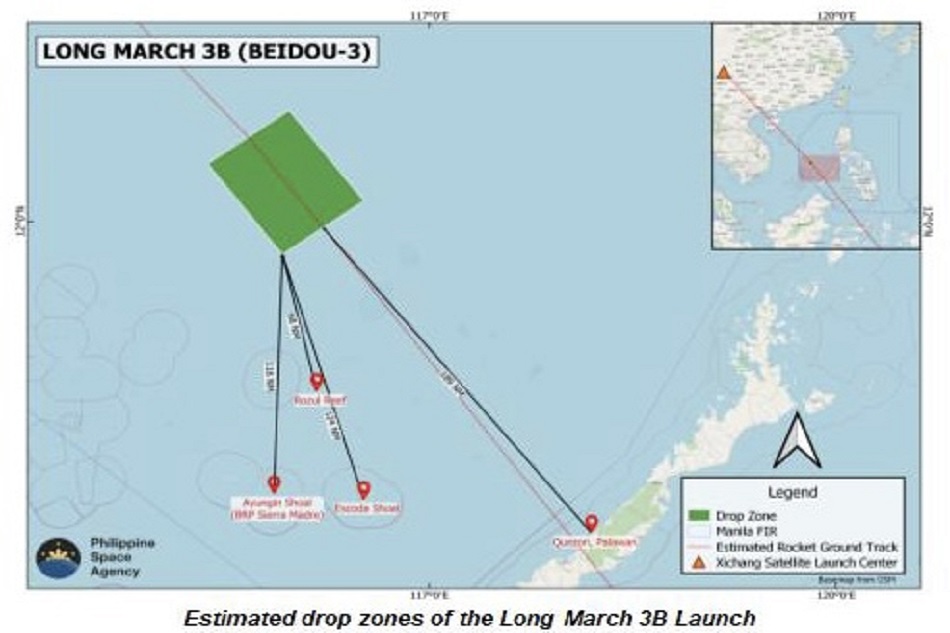Remnants from China’s rocket launch likely to have fallen off in WPS: PhilSa
Remnants from China’s rocket launch likely to have fallen off in WPS: PhilSa
Michael Joe Delizo,
ABS-CBN News
Published Dec 27, 2023 05:30 PM PHT
|
Updated Dec 27, 2023 06:10 PM PHT
MANILA – The Philippine Space Agency (PhilSa) on Wednesday confirmed China’s successful launch of a powerful rocket, with remnants likely have fallen off an area in the disputed West Philippine Sea.
MANILA – The Philippine Space Agency (PhilSa) on Wednesday confirmed China’s successful launch of a powerful rocket, with remnants likely have fallen off an area in the disputed West Philippine Sea.
In a statement, PhilSa said China’s Long March 3B was launch from Xichang Satellite Launch Center in Liangshan Yi Autonomous Prefecture, Sichuan province at 11:26 in the morning on December 26.
In a statement, PhilSa said China’s Long March 3B was launch from Xichang Satellite Launch Center in Liangshan Yi Autonomous Prefecture, Sichuan province at 11:26 in the morning on December 26.
Expected debris from the rocket launch was projected to have fallen within the identified drop zones approximately 68 nautical miles away from Rozul Reef and 116 nautical miles away from Ayungin Shoal, according to the agency.
Expected debris from the rocket launch was projected to have fallen within the identified drop zones approximately 68 nautical miles away from Rozul Reef and 116 nautical miles away from Ayungin Shoal, according to the agency.
PhilSa said rocket debris, which generally burns up in the atmosphere on re-entry, may incur potential risks to ships, fishing boats, and other vessels that will pass through the drop zone of the debris.
PhilSa said rocket debris, which generally burns up in the atmosphere on re-entry, may incur potential risks to ships, fishing boats, and other vessels that will pass through the drop zone of the debris.
ADVERTISEMENT
It added that there is also the possibility that the remaining rocket debris may float around the area and wash toward the nearby coasts in the future.
It added that there is also the possibility that the remaining rocket debris may float around the area and wash toward the nearby coasts in the future.
The public is advised to contact local authorities if suspected debris is sighted.
The public is advised to contact local authorities if suspected debris is sighted.
The agency cautioned against retrieving or coming in close contact with the debris that may contain remnants of toxic substances such as rocket fuel.
The agency cautioned against retrieving or coming in close contact with the debris that may contain remnants of toxic substances such as rocket fuel.
ADVERTISEMENT
ADVERTISEMENT



